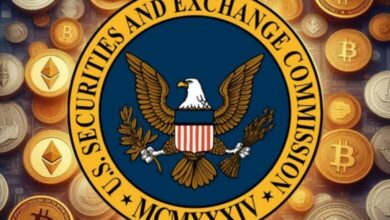Justice Strikes Back: SEC Sanctioned for Abuse of Power in Debt Box Case

A United States district court has issued sanctions against the Securities and Exchange Commission (SEC), citing what it deemed a “gross abuse of power” in its legal pursuit of the cryptocurrency company Debt Box.
The case has sparked significant attention due to allegations of bad faith on the part of the regulatory body, casting doubts on the integrity of its enforcement actions.
The controversy erupted when the SEC sought a Temporary Restraining Order (TRO) and asset freeze against Debt Box, alleging its involvement in a fraudulent $50 million cryptocurrency scheme. However, revelations surfaced indicating that the SEC had provided misleading information to obtain the TRO.
This included false assertions about a $720,000 transaction, which was revealed to be an internal transfer within the United States, contrary to the initial claims of it being an overseas transaction.
Judge Robert J. Shelby criticized the SEC’s handling of the case, highlighting the blatant misrepresentations made to the court. The judge’s ruling served as a firm criticism to the SEC, emphasizing that such misconduct not only hindered the court’s ability to fulfill its role but also undermined the integrity of the legal proceedings.
As a consequence of these findings, the court has mandated the SEC to cover Debt Box’s legal fees, costs, and expenses incurred as a result of the SEC’s misconduct. This penalty serves as a resounding condemnation of the regulatory body, highlighting the imperative of transparency and integrity in the legal process, especially when wielded by an entity tasked with regulatory oversight.
The aftermath of this decision has sparked broader discussions on the accountability of regulatory bodies and ethical conduct in legal proceedings. The SEC’s initial justifications for its lack of honesty were met with skepticism, and the subsequent ruling has underscored the necessity for regulators to adhere to the highest standards of integrity.
In light of these events, calls for increased scrutiny and potential reforms within the SEC have grown louder among industry observers and legal experts. The case has shed light on the delicate balance regulators must maintain between law enforcement and respecting the legal rights of the entities under investigation.
Moreover, the case has raised concerns regarding personal liability concerning the actions of other attorneys within the SEC. Critics argue that individual accountability must be upheld to prevent further ethical lapses and ensure that those in positions of power are not shielded from the consequences of their actions, especially when it comes to the crypto industry.





